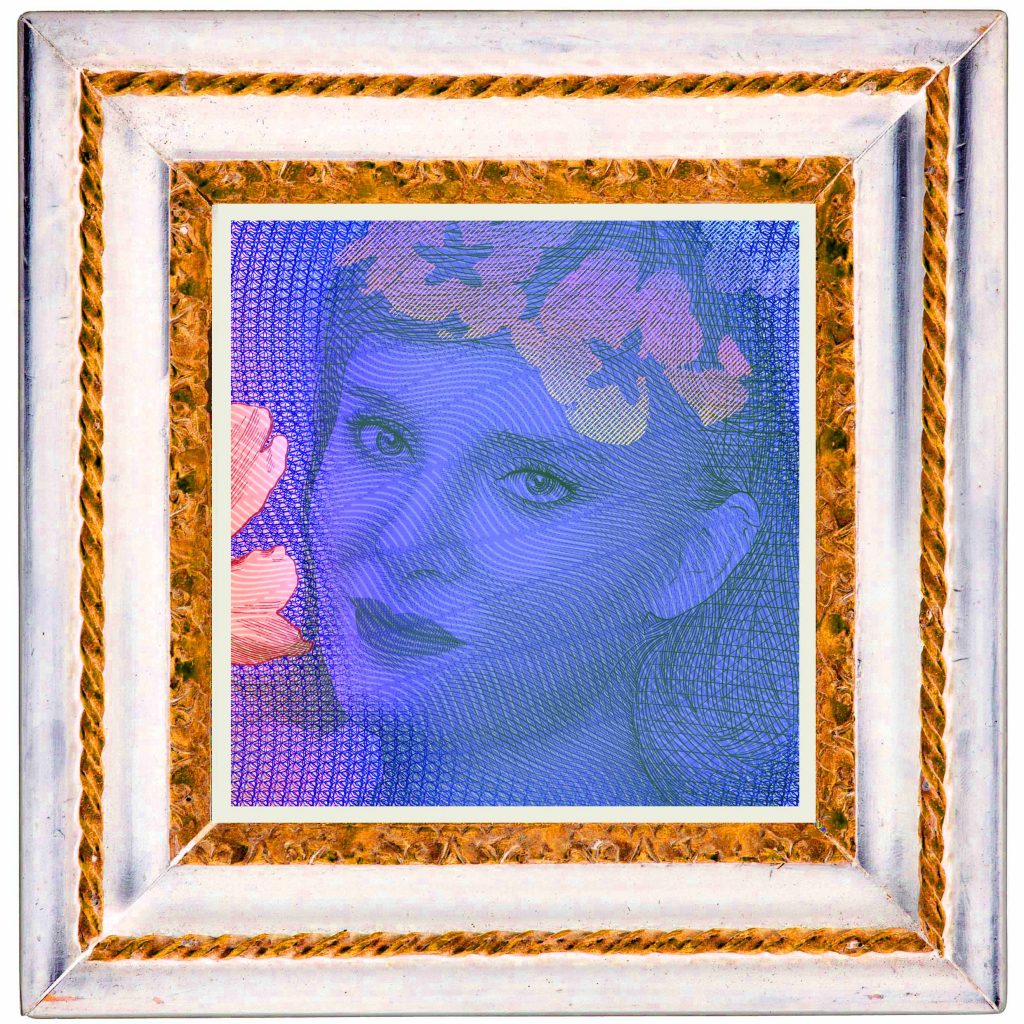The Everett-Wheeler model of the space-time implies that all possible outcomes have happened, are happening, and will happen, across an infinite number of timelines. For example, in another timeline, The Third Reich won WWII. In another timeline, the Third Reich won WWII, but Adolf Hitler was black. In another timeline, the allies won WWII, but primates fought the whole war. You get the idea. Our timeline__the one we experience__is experienced by us precisely because it happens to be the most probable scenario of this timeline.
The other factor in the Everett-Wheeler model is Divergence. The more you traverse in time from a set point (either by going forwards or backwards in time), the greater the divergence between what would have occurred on your original timeline, and what is actually experienced. For example, if you traveled fifteen years backwards in time from now, there would be differences in weather reports, sports results and lottery winners, but there would still be the same geopolitical scenarios, and Britney Spears. But if you traveled as far back as ancient history, you may find the Earth already colonized by a civilization with high technology.
It is possible to for us to access timelines other than our own. I speculate that we do it every day. The phenomenon of daydreaming for instance, if intense enough, is actually a form of traveling to alternate realities. More concrete forms of traveling can take place in altered states. The Theta state during meditation allows for travel, as does the Lucid Dreaming state. The human imagination is literally a vehicle that can traverse time and space.
Most humans dont use their imaginations to its fullest extent, as they are locked down into linear time, by the repressive situation some people like to call everyday life- which is a linear and arbitrary progression of segmented time, placed according to someone elses schedule.
Given that multiple timelines can be accessed during altered states, Ill put money on being able to access multiple timelines when we die. And heres the thing that haunts me
At the moment of death, we are released from linear time, and we can access the panorama of all that could have been__we can access all probable outcomes in our life. From that vantage point, we can see everything our life could have been, if we had put more of ourselves into our journey; if we had been more present; if we had committed more imagination to our lives. This haunts me because weve all experienced the consequences of careless mistakes, that could have been avoided if we had concentrated on the job; weve all had failed relationships that ended because we withdrew ourselves, for whatever reason; weve all completed projects that could have been much better, had we not just given all that we had to give; weve all had times when we chose to just go through the motions__at the office, at the gym, washing the dishes__instead of being 100% committed to what we wanted to achieve
and we are all Nobel Peace Prize winners in coming up with excuses of why we didnt, couldnt or wouldnt__except after we die. After we die, we see all the times we withdrew our imaginations, our intention, and our creativity, and chose mediocrity, and we see how we chose to paper over the pain of choosing mediocrity with all the entertainments and distractions that modern Earth life offers.
When I go to the art gallery__any contemporary art gallery__Im often wondering: has the artist put everything they had into this work of art, or are they just going through the motions, churning another one out? Ultimately, that is between the artist and their work, but that doesnt stop me asking. When I think of what Humans are actually capable of when we are put under pressure, or when we put the pressure on ourselves__we are an amazing race. We are incredible builders, extremely quick learners; we are prescient, we feel intense emotions, we seem to grab solutions to mathematical and scientific problems out of nowhere (or out of notime); we are brilliant mimics, we are intensely curious__we want to learn. I would put money (I like to bet) on us being unique in the above respects, even if we are not alone in the galaxy.
Video Still from ReSearch by artist Ryan Trecartin (2010)
Manuscript from Beethovens 9th Symphony, written when he was almost completely deaf
So when I look at a lot of contemporary art, bearing in mind all that we are capable of, I cant help feel that it falls short. I cant help feel that Im witnessing mediocrity, and a lot of afterlife regret. What are the assumptions underpinning art made today? Is it something that can withstand the test of 1000 years, or is just flimsy? Does it WANT to communicate, or is it just presenting some obtuse concept to be deduced, or explained by any other means that the art itself? Is it pre-imagining antidotes to our culture, or is it merely COPING with it?
When cultures die, they tend towards the latter.
It would be too easy to make this a critique of conceptual art. Me and anyone form the art world can argue it out__it would be fun to watch. We could talk about how conceptualism, once rebellious, has opened the gates to lazy, shoddy ways of making__ways of making that lack intent. We can talk about this, combined with the professionalization of the artist in the twentieth and early twenty-first century, has mandated the same laziness into paid careers. And we can talk about both these things, combined with the art worlds embrace of liberalism, the ideology of existentialism, and the ideology of nihilism, has led to the denial of Human potential, and a rejection of anything other than a narrow Transhumanist and politically correct worldview, when taken to its logical conclusion
and how these same impulses are reflected in Western culture at large, and how this seals the fate of Western cultural dominance: sinking, dying, dead. We can talk about it all.
Nevertheless, we are here__at the precipice of the death of Western culture, and all the lazy and shoddy premises and assumptions it is built on. This is not up for debate. The evidence is all around you__economy, migration patterns, escalating religious war and terrorism. Liberalism does not posses to tools to us lead out of food shortages, environmental collapse, autism, Creutzfeldt-Jakob Syndrome, religious war, unsustainable national debts. And since most of our institutions are led by Liberalism, including the art world, they are all equally incapable of finding solutions. This is what cultures look like before they die.
Touch by artist Eddie Peake (2012), performance art In an interview with the Guardian, Eddie Peake said: Of all things in the world surely the body is the one thing which doesnt have inherent meaning.
Publicly beheaded corpses of men accused of being Apostates by ISIS
the weaker culture is inevitably overpowered by the culture with stronger ideals, regardless of morality.
Given that we are witnessing the death of culture all around us, what is the most appropriate position to take? Debating how we all got here and whos to blame__there will be plenty of time for that. That debate is no longer appropriate. What is appropriate? To remember what is inevitable: death is inevitable__including the death of cultures.
I think the same applies, whether its an individual or an entire culture. Cultures die because everyone was too complacent__they didnt invest enough of themselves into their lives, their relationships, and their art. They went for the easy option: they forgot the gut and the heart, choosing inconsequential intellectualizing over intuition, FEELING, emotion; the true source of creative power.
Had we done so, we would not have patronizing governments who insist on invading every aspect of human existence; we would not have a mass media, which when not peddling fiction, is subverting the truth through bewildering over-complication; we would not have ideologies that depend on simplistic, black-and-white half-truths, backed up by so-called science, which is given a platform by media and funding by government only when science is complicit with the agendas of both.
And the same is true after death. After a person dies, theyre able to view the quantum probabilities of their entire life. After a culture dies, those that survive__though they have lost it all__now realize what they could have done
You could have practiced self-reliance: you wouldnt have needed a government to protect you.
You could have looked inside yourself and your own unique experience to come to your own conclusions: you wouldnt have needed the opinions of tele-prompters, gurus, experts, academics or disposable icons.
You could have made conscious efforts to grow, instead of cutting corners and reaching for off-the-shelf ideologies and relativism.
You could have fearlessly pursued your own dreams: you wouldnt have lived a life based on the desires of others.
You could have committed to self-development: instead you put off growth by refusing to be vulnerable__each minute refusal hardening the shell of excuses and doubt.
You could have accepted yourself; you would have charismatically sailed through life with magnanimity: instead you chose to withdraw in intellectualism, judgment, and the false comfort of self-protection.
You could have made beautiful artwork by pouring all your pride and creative energy into the thing to make: but you chose whatever takes the least time with the least effort.
and now, after the death of the West, we all know how to live.












